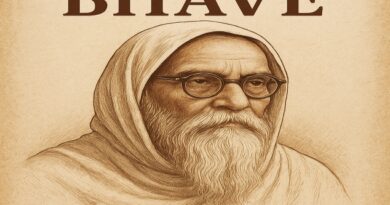Swami Vivekananda Biography – Life, Teachings, and Legacy of India’s spiritual icon, Inspirational story
Discover the inspiring Swami Vivekananda Biography, covering his life, teachings, Chicago speech, Ramakrishna Mission, quotes, and lasting impact on youth and humanity.
Swami Vivekananda Biography Introduction
Swami Vivekananda was a legendary Indian monk, spiritual reformer, and a key figure in introducing Indian philosophies of Vedanta and Yoga to the Western world. Born as Narendranath Datta, his journey from a curious child to a global spiritual leader continues to inspire millions.
His iconic speech at the Parliament of World Religions in Chicago in 1893 marked the beginning of India’s spiritual voice on the global stage.
Table of Contents
Early Life and Education
Narendranath Datta or Swami Vivekananda was born on 12 January 1863 in Kolkata (then Calcutta), West Bengal, into a well-educated Bengali family. His father Vishwanath Datta was a lawyer, and his mother Bhuvaneshwari Devi was a religious and wise woman.
From an early age, Narendra was intelligent, inquisitive, and deeply spiritual. He excelled in academics and was well-read in philosophy, religion, literature, and history. Swami Vivekananda graduated from the Scottish Church College in Kolkata.
He questioned the existence of God and sought answers from various religious teachers. His quest ended when he met Sri Ramakrishna Paramahamsa, a mystic saint of Dakshineswar, who became his spiritual guru.
Spiritual Journey and Formation of Ramakrishna Mission
Under Ramakrishna’s guidance, Narendra experienced deep spiritual transformation and was eventually initiated as a monk, taking the name Swami Vivekananda.
After Ramakrishna’s death in 1886, Vivekananda and his fellow disciples founded a monastic order. In 1897, he formally established the Ramakrishna Mission, a spiritual and humanitarian organization based on the principles of Karma Yoga, selfless service to humanity.
Chicago Speech in 1893
Swami Vivekananda gained global recognition after his historic speech at the Parliament of World Religions in Chicago on 11 September 1893. He began his speech with the words “Sisters and Brothers of America”, which received a standing ovation from the crowd of thousands.
In his speech, he highlighted the values of tolerance, harmony, and universality of Indian spirituality. His message impressed Western thinkers and opened a new channel of understanding between India and the West.
Motivational quotes by Vivekananda
“Take risks in your life. If you win, you can lead. If you lose, you can guide.”
“All power is within you, you can do anything and everything.”
“Take risks in your life. If you win, you can lead. If you lose, you can guide.”
“Arise, awake, and stop not till the goal is reached.”
Also Read: Dr APJ Abdul Kalam Biography, The people’s President and Missile man of India, Inspiring story
Teachings and Philosophy
Swami Vivekananda’s teachings were rooted in Vedanta and the Upanishads. His key ideas include:
- Faith in oneself – He believed that self-confidence is the first step to greatness.
- Service to humanity – “Jiva is Shiva” (Each soul is divine). Serving people is serving God.
- Universal religion – He preached religious tolerance and acceptance.
- Education – True education is the manifestation of perfection already in man.
He urged Indian youth to be strong, courageous, and self-reliant. His slogan “Arise, awake and stop not till the goal is reached” continues to energize generations.
Death and Legacy
Swami Vivekananda passed away at the young age of 39 on 4 July 1902 at the Belur Math near Kolkata. Despite his short life, he left an everlasting legacy.
His birth anniversary, January 12, is celebrated as National Youth Day in India. The Ramakrishna Mission continues his vision through education, healthcare, and spiritual teachings.
Global Influence and Inspiration for Youth
Swami Vivekananda’s life and message continue to inspire generations, especially the youth, by encouraging strength, self-belief, and service to humanity. Through his teachings, he awakened confidence in India’s spiritual heritage and motivated young minds to combine character, courage, and compassion. His emphasis on practical spirituality, national pride, and universal brotherhood made him not only a religious leader but also a guiding force for personal growth and social transformation worldwide.
Summary
Swami Vivekananda was not just a monk but a visionary who awakened India’s spiritual consciousness and global respect. His life teaches us the power of faith, strength, and service. In a time of confusion and chaos, his words remain a guiding light for humanity.
Also Check: Biography
![]()



